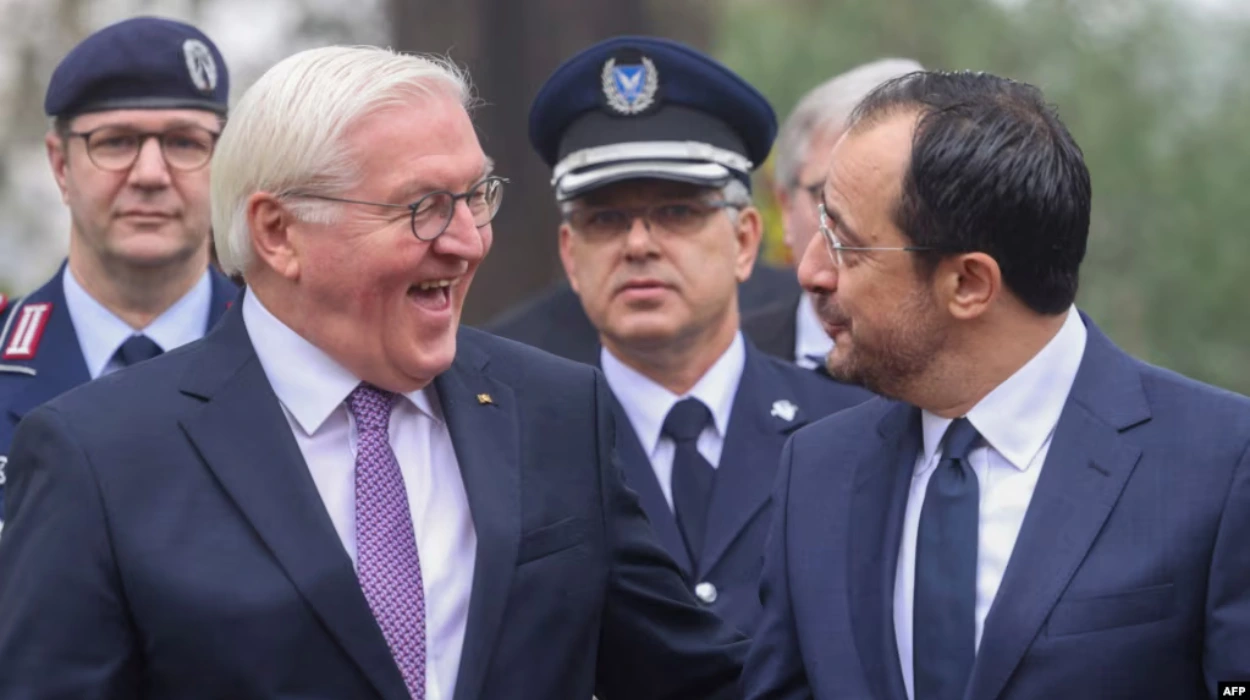Turkey (Transatlantic Today)—The Cypriot President, Nikos Christodoulides, emphasized on February 12, 2024, that any progress in Turkey’s relations with the European Union must address the long-standing division of Cyprus. Speaking in Nicosia during German President Frank-Walter Steinmeier’s official visit, Christodoulides reiterated Cyprus’ position as a “strong supporter” of closer EU-Turkey relations, provided tangible steps are taken toward resolving the Cyprus conflict.
Cyprus’ Role in Turkey’s EU Aspirations
Turkey has been an official candidate for EU membership for decades. However, accession talks have been stalled due to EU concerns over Ankara’s human rights record and rule of law. As an EU member, Cyprus wields veto power over Turkey’s membership ambitions, giving it a critical role in the discussions.
The island of Cyprus has remained divided since Turkey’s 1974 invasion, following a brief Greek-backed coup. The internationally recognized Republic of Cyprus controls the southern part, which joined the EU in 2004, while the self-declared Turkish Republic of Northern Cyprus, recognized only by Turkey, governs the north.
“Closer relations [between the EU and Turkey] pass through developments and a solution to the Cyprus problem,” Christodoulides told reporters.
Germany Backs International Efforts
German President Frank-Walter Steinmeier echoed Christodoulides’ sentiments, stressing that Turkey’s actions regarding Cyprus should be factored into the EU’s assessment of its overall relationship with Ankara.
“Member states should send this message to Turkey,” Steinmeier said via an interpreter. He also announced that Germany would contribute police officers to the United Nations Peacekeeping Force in Cyprus (UNFICYP), which has been maintaining peace along the 180-km ceasefire line since violence between Greek and Turkish Cypriots erupted in 1963.
Reviving Peace Talks
Peace talks aimed at resolving the Cyprus issue collapsed in 2017, and no significant progress has been made since. The Cypriot government has called for the European Union to appoint an envoy to oversee renewed negotiations, while continuing to support the role of the United Nations in peacekeeping and peacemaking efforts.
The renewed international focus, including Germany’s increased involvement, signals potential momentum toward addressing the island’s division. However, it remains to be seen whether Turkey will engage constructively on this issue as part of its EU aspirations.


























